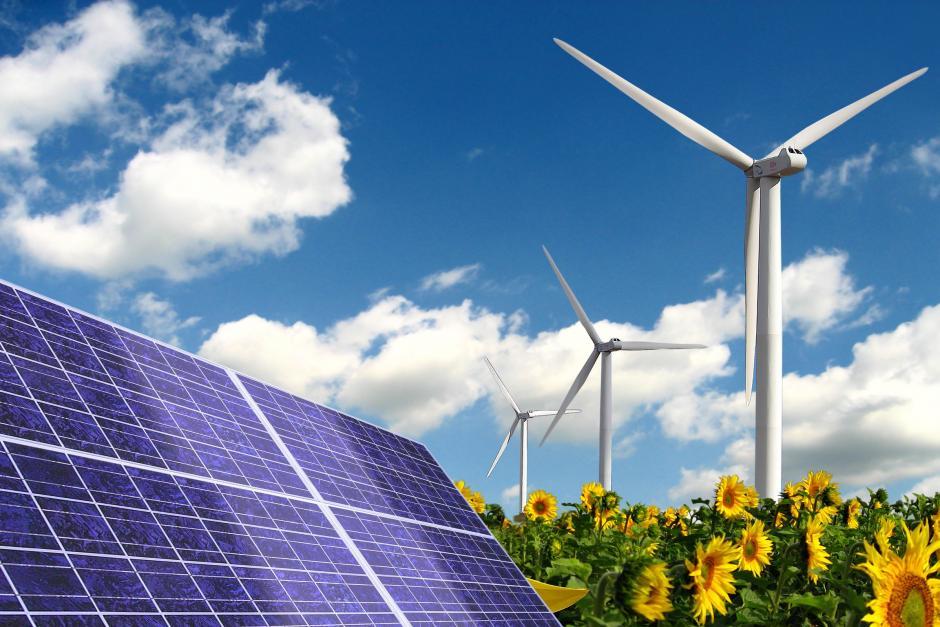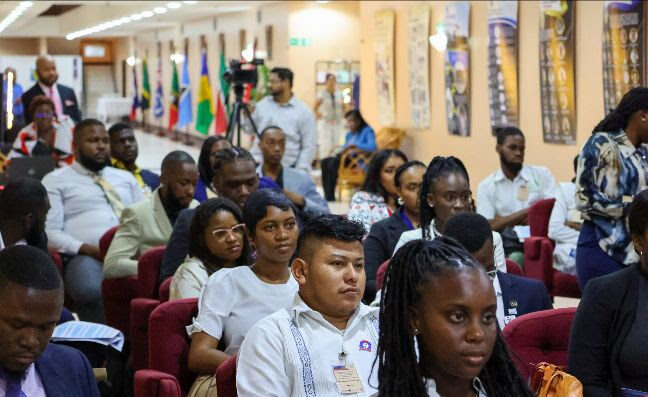Prime Minister Andrew Holness says Jamaica is on track to achieve 30 per cent of its electricity from renewables within two years, surpassing the target in the National Energy Policy for renewables to account for no less than 20 per cent of the country’s energy mix by 2030.
“We now have a combined supply of just about 120 megawatts of renewable electricity power, which is currently in our grid and that will put us to about 15 and 18 per cent of electricity generation… so it is quite likely we will achieve the 30 per cent by 2020 if we continue at this pace,” he said.
Addressing a ceremony to commission solar photovoltaic panels into operation at the Office of the Prime Minister (OPM), Holness noted that with the gains made in renewable energy, his administration is pushing to achieve “a more ambitious target (of) 50 per cent of our electricity generation from renewables by 2030.
“I think this is doable. There is a certain reality that we have to pay attention to (and that) is climate change… . We have to be resilient (and) a part of that is what we do with our energy mix.
“Pushing our energy generation to be 50/50 fossil fuels and renewables is in our national security interest, (and) in our survival interest; we have to embrace renewables,” he said, noting that the installation of the solar panels at OPM will result in a reduction in the electricity bill.
The project was led by Solar Head of State, a non-governmental organisation whose goal is to install solar on influential government buildings around in world, and involved collaboration with the Petroleum Corporation of Jamaica (PCJ), National Energy Solutions (NESol), the Clinton Foundation and other partners.
It included a Jamaica Solar Challenge competition, with young Ryan Bent winning the top prize of $75,000 for composing a song to communicate the benefits of solar energy.
PCJ Acting General Manager, Robert Clarke, explained that his agency provided partial funding and technical support towards the solar panel project, which is among the public-sector energy efficiency initiatives that the entity is involved in over the next three to five years.
He said the overall goal is for these undertakings to transform energy use in public-sector agencies.
“These initiatives should help to alleviate the burden of the increasing energy expenses currently being faced by government. We have formed partnerships with multilateral agencies… to finance and implement energy efficiency and renewable energy projects in schools, hospitals and other government-operated entities islandwide.”
NESol Chairman, Oswald Williams, explained that the area of the building covered by solar power “now has three areas of supply (of energy)” (and) the system installed is certified and up and running”.
Williams said it has been the dream of the Clinton Foundation out of the United States to put into operation this form of system, and hopes for greater partnerships between the Foundation and Jamaica.
Director of Solar Head of State, James Ellsmoor, pointed out that the organisation partners with Small Island Developing States (SIDS) for renewable energy solutions and is already in countries such as the Maldives and St. Lucia.
He said the organisation will be carrying out more installations across the world to show “the role that SIDS have in demonstrating the importance of renewable energy.”




